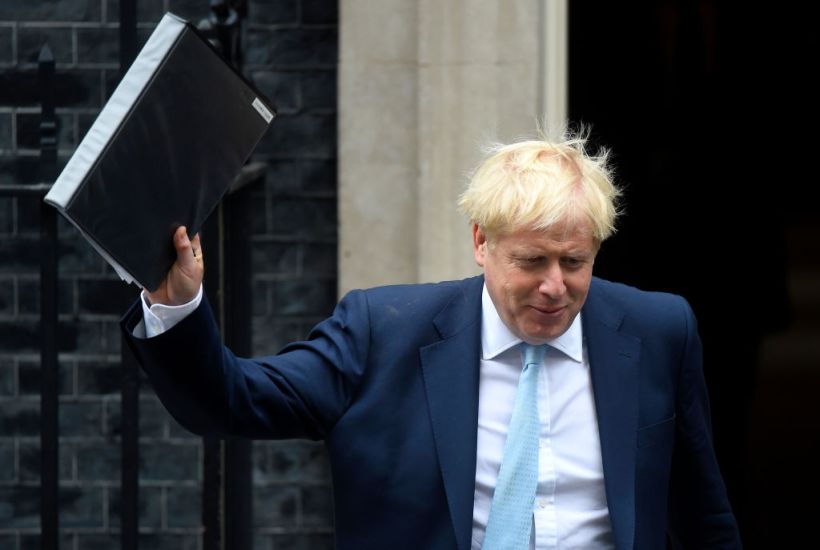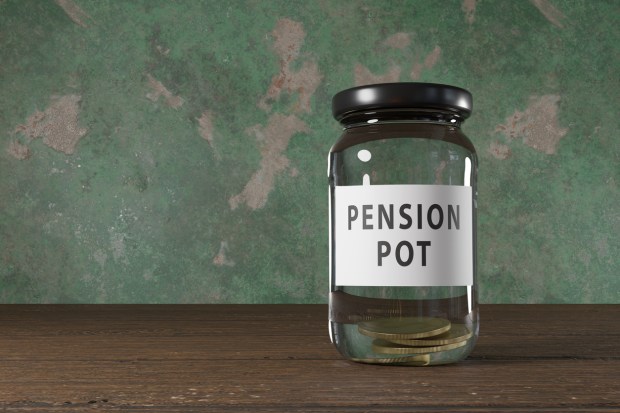Will he strike a deal with the EU allowing Britain to leave this month? Will he compromise on the Irish border? I don’t know what Boris Johnson will do. I’ve thought for some time that he and the Conservatives would be quite willing to compromise on Northern Ireland’s future status, but I’ve also often wondered whether some people close to him would be quite happy to charge towards a no-deal exit in hope of smashing through all those who would stand in the way.
Let us assume the current talks with the EU are being held in good faith on both sides. This does make sense: both sides’ best interests lie in a negotiated exit, after all. How to explain Johnson’s drive for a deal, his apparent willingness to compromise? Here’s my answer: the Benn Act, which the PM calls that Surrender Act.
This is the law that will oblige Johnson to seek an extension to EU membership if no deal is struck by 19th October. It is also, in an earlier No 10 narrative, the reason there probably won’t be a deal: Downing Street argues that removing the hard deadline removes the EU’s need to do a deal; instead, the story goes, the EU sees a chance to extend and then seek to either reverse Brexit via a second referendum or strike a softer deal with a non-Tory government.
Is that a story an accurate description of the EU position and reaction to Benn? I have my doubts, but that’s not the point. What’s more interesting is the way the No 10 narrative puts all the attention on the EU side, and has little to say about how Benn affects the UK calculation.
The defining political message of the Johnson premiership is that he will take Britain out on 31 October, that unlike all other politicians, he can be trusted to do what he says he will on Brexit. And right now, a lot of voters believe Johnson will indeed do that.
What would be the consequences be for Johnson if he doesn’t deliver on that promise? Westminster’s focus on “blame games” and possible explanations he might offer for missing that deadline (“this wasn’t my delay, it was Parliament’s”) are, as ever, missing the bigger, simpler point. He made a promise to “get Brexit done” this month and if he doesn’t, a lot of people who wanted that will be unhappy with him.
How unhappy? There are people in No 10 who privately regard failing to leave on 31st October as the worst-case scenario for Johnson and the Conservatives. Behind the bluster and spin about blaming Remainers and punishing the EU, there is a real fear that not getting Britain out on 31st October will mean the destruction of the Conservative Party. Having spent three months turning the party into the vehicle of choice for Leavers, failing to deliver an exit on time, they fear, would be catastrophic.
The Benn Act ensured that leaving on the 31st was no longer a given. Because Johnson’s primary aim was and always has been to get Britain out by that date, the Benn Act changed the British political outlook. It meant the best and possibly only way to achieve that goal is a deal. Of course No 10 will continue to explore — and threaten — clever legal routes around the Act. But journalists shouldn’t just look at the things politicians — and their creatures— say. They should pay at least as much attention to what they don’t say.
And one of the things that No 10 isn’t talking about is the fact that if (as most lawyers expect) those brilliant, secret wheezes aren’t actually as brilliant and foolproof as the briefings suggest, then Boris Johnson faces a quick, stark binary: leave the EU with a deal on 31st October, or break the cardinal promise of your premiership.
And if — as seems likely — politics in next week or two does come down to that choice, it makes sense that Johnson would sincerely seek an accommodation with the EU. Today’s Sunday Times splash, reporting that the PM is asking the 27 to let Britain leave, deal or no deal, on the 31st, is another data point suggesting quiet prime ministerial desperation. It also makes me wonder whether No 10 has accepted there is in fact no clever legal way around a Benn Act extension.
Put it another way, Johnson’s position increasingly looks like “any deal is better than no exit”. And that is because of the Benn Act.
Don’t believe me? Well ask yourself this: what would Boris Johnson be doing right now if that act had not been passed? How far he be reaching out to the EU, to Leo Varadkar, if he knew the law guaranteed Brexit and the fulfilment of his biggest promise at the end of the month come what may?
If Boris Johnson does a deal to get Britain out of the EU this month, a big reason for that will be the legislation he has spent so much time condemning.
Got something to add? Join the discussion and comment below.
Get 10 issues for just $10
Subscribe to The Spectator Australia today for the next 10 magazine issues, plus full online access, for just $10.




















Comments
Don't miss out
Join the conversation with other Spectator Australia readers. Subscribe to leave a comment.
SUBSCRIBEAlready a subscriber? Log in